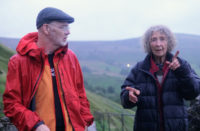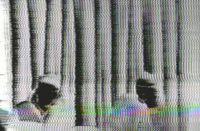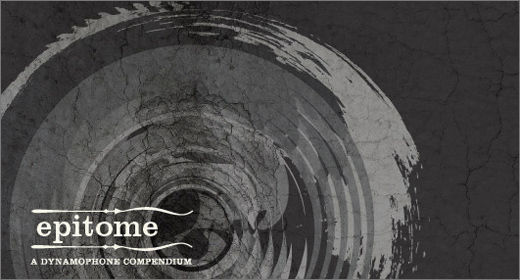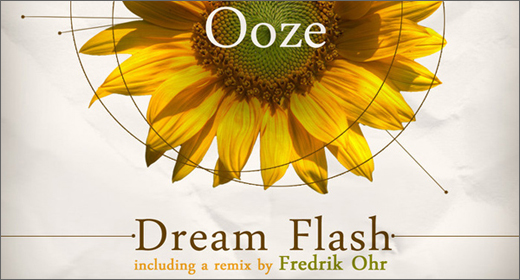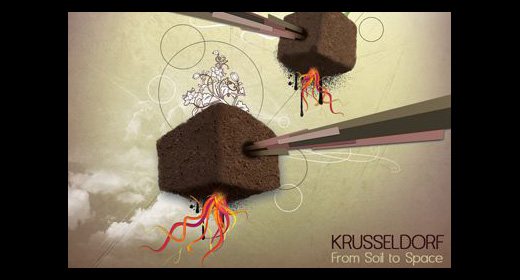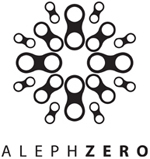
(11.24.07) ALEPH ZERO is the epitome of chill. Releasing about two records a year over the first four years of their existence, their blend of world beat, downtempo, and liquid ambience is the atmospheric equivalent of a long luxurious vacation. You drop in, get comfortable, and suddenly weeks and months have gone by. In the frenetic internet-driven immediacy of modern civilization, there aren’t many opportunities to simply chill out. Igloo caught up with Shahar Bar-Itzhak, one half of the Aleph-Zero creative team, to find out how the magic of sonic suspended animation works.
::..:::…..:..::….:::::..:::..:::::::……:::…::.:::….::::..:..:::…::…….:::::
Igloo :: Aleph Zero is a collaborative label between yourself and Yaniv Shulman. While you both have been part of the chillout music world for some time, what was the spark that generated the label?
Shahar Bar-Itzhak :: Actually Yaniv started the label to release the music of his own project Shulman, after being tired of dealing with unprofessional labels. We’ve known each other for a while and when he asked me to join him, I agreed at once. I was compiling compilations for other labels at the time, and had also found things to never be up to my standards. I guess we had mutual appreciation for each other as serious and devoted people with a good taste in music, and both thought it was a good idea to hook up. I must say that things are working very well: we really complement each other, each of us is good at and likes to do what the other doesn’t. We don’t always agree on the music, but as we have decided to release only what we both like, it works as a double quality filter, which is good.
Igloo :: On your website, you challenge the listener to “dive with us into the infinity of the musical ocean.” What’s the allure of an “ocean” of sound to us land-walkers? How does the use of that metaphor encapsulate the style of your label?
Shahar :: Hmmm . . . good question. It just came out of me without thinking when I wrote the text. Thinking about it now, I think it really does fit. An ocean is infinite in a way, and it is also deep and alien–it represents a different atmosphere and it has calming effect. At the same time, it is a universe of its own with immense diversity–full of surprises. These are all things that are part of our musical vision.
Igloo :: You’ve just released your first digital collection (well, your first purely digital collection; most of your releases are available at the forward-thinking online outlets). Do you see digital distribution as a boon or a necessity in the 21st century marketplace?
Shahar :: I must say that I like CDs (of which I have thousands); I even still own and listen to a very big collection of records. I like quality and listen to music in a good stereo system or with very good earphones, and only to CD or better quality. However, things are changing, and more and more people are listening to music in file format. It has its advantages–we humans sure have enough plastic as it is–and it does make distribution around the world easier and cheaper-the music becomes more accessible.
There are some disadvantages too. We have to remember that a lot of people in our world still don’t have computers of their own, not to mention portable mp3 players. And the thing I’m most worried about is the album concept–the concept of a musical statement that is longer than 3-10 minutes. I’m worried that we’ll lose deeper, more complex, music–the sort that does not reveals itself immediately. We live in an instant age. Everything is “now” and “quick.” People have short attention spans and face tons of information. Purchasing a CD makes it more likely that you’ll listen to an album as an album, that you’ll listen to it a few times.
Digital media can also be developed in very positive ways. Our Digital Singles project enables us, for example, to release very interesting music, more experimental and different stuff coming from our artists’ studios; or to collect Aleph Zero music that was released on other labels and compilations and make them available to our followers. On CD, that would be a financial risk.
Things are changing and I am fascinated by the change; we just flow with an open mind. In the end, the bottom line is that if you have excellent music, you have a good chance to survive–in whatever format. That is something we try to do here.
Igloo :: You’re physically based in Israel. Is the local music scene supportive of your label’s style or, like your musical references, are you a global label?
Shahar :: We’re basically a global label: we have released music from artists from USA, Canada, UK, Sweden, Bulgaria, Hungary, Germany, Israel and other places. The big majority of our sales comes from outside Israel. But Israel has always been a great place for different alternative music. The local electronic music scene, especially the more dance oriented stuff, is highly developed. Sometimes it seems that every second kid here is making music on his computer. Israeli electronic artists & DJs tour the world constantly. The world music scene is also huge here–Israel being a big meeting point for different cultures–and Israeli acts are released records and performing all around the world.
These are the two scenes we draw from, and so it is pretty natural to me that Aleph Zero is here. Israel is full of inspiration, and all our area, believe it or not, is very deep and relaxed in many ways (not shown on CNN/BBC). We do have support here, and a small devoted crowd of followers. But I must say support from the media came mostly after we had success overseas. Israel’s main news website wrote about us only after they’ve heard we got a good review in the New York Times.
Igloo :: Do you think the proliferation of bedroom composers and DIY CD-R labels (or purely net-based labels, even) is having a fortuitous impact or a negative one? Is the ocean getting too full of sound?
Shahar :: Again, it has positive and negative effects. The ocean is sure rising and it seems we’re all going to drown, and most of the water are pretty murky. Personally I believe it is a good time to release music if you trust your quality level. We believe that in this time of flooding, if we are able to raise a flag of quality in the ocean of mediocre, people will flock to us. That is why we are very careful with our records, taking care not to hurry and release. Probably for every track we release we listen to a few hundred that we don’t. We filter strongly, and I think it works. People are going have to find the good music somehow, aren’t they? We’re just trying to supply it.
Igloo :: Chillout music (and, more technically, trance) can be prone to suggesting expansive modes of consciousness (or unconsciousness, for that matter). Does the music suggest synaesthetic moods (where sound takes on color or some other sort of sensory confusion)?
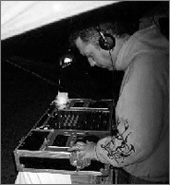
Shahar :: For sure! If it’s good it does. A lot of what is called chillout music today is more soft pop. I don’t like pop (today’s pop, anyway)– it’s boring for me. We do our best to release music that affects the way you perceive reality. Just listen to any Shulman album, and you’ll understand what I’m talking about.
Another good example is an album we’re releasing in December by a Bulgarian artist named Vataff Project. He really has the ability to make you feel like you’re losing grip of reality. He just sounds liking nothing else. Bluetech, one of our leading artists, does that to you as well, though in a total different way–much more subtle.
Igloo :: How do you stay awake when you’re considering demo tapes? I would imagine too many hours of listening in a row would induce near-narcoleptic states.
Shahar :: I have a very diverse taste in music, and I listen to all kinds of stuff. I don’t want to listen to stuff that fits the Aleph Zero moods (diverse as they are) all the time. However, I don’t listen to demos when I don’t feel like it. There’s no point to it then. I’m sure I’m going miss hearing good stuff when I’m like that. I do listen to everything people send us (you won’t believe how much music we get, really . . .), and I try to give feedback to everyone, but it takes time. If I think there’s a spark there, even if I didn’t totally connect, I try to listen again in another space and time. It happened that I connected to something in a different time that I wasn’t impressed with at first. But I must say that the really good stuff just jumps out on you, especially when you listen to so much stuff.
Igloo :: What’s the first record that made you say, “Yes, that’s it. That’s the reference point of the label.” Why? What drew you to that sound?
Shahar :: Do you mean an outside reference? I’m not sure there is a specific one. We have general references, but less in musical style and more in our general vision and ways of working. I can’t even point to one of our own releases as a reference. We are very diverse in our taste and in the way that we define ourselves. Basically we’ll release anything that is electronically based (though a lot of our artists incorporate acoustic instruments into their music) and that is more downtempo if we feel it’s good and fresh. I can say, however, that most (though not all) of our releases tend to be deep. We like music you keep discovering again and again, music that unfolds with time, and that somehow alters the reality around you.
Igloo :: DJ set. Old favorites or new material?
Shahar :: Everything! I try to create a unique experience in my sets, and I prefer to play long 6-12 hours sets (and I’m aiming eventually to do a 24 hour set). I use my vast musical background of more than 20 years of collecting and listening to music to play very diverse sets. My sets can combine, besides Aleph Zero music and the more usual chillout played at parties and festivals, IDM, electronic weirdness, elements of ethnic music (from Mongolia to India to the Balkans), psychedelic pieces from the colorful past (from Pink Floyd to Ozric Tentacles; there’s even a Black Sabbath song I play!), diverse electronica, and a lot of spacey dubby beats. The great fun in playing chill stages or rooms is that you’re basically not limited at all with what you play, you just have to feel the people and guide them with your story. You can have them lying on their back staring at the sky or grooving slowly while relaxing their minds. It’s much better than DJing beats, though less rewarding in the short term (no hands in the air and wild screaming) and money-wise, of course. Though things are slowly developing for the better.
::..:::…..:..::….:::::..:::..:::::::……:::…::.:::….::::..:..:::…::…….:::::
For more information about Aleph Zero, visit their website at aleph-zero.info.







